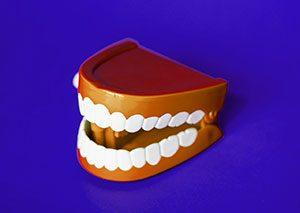
Gum disease, or gingivitis, occurs when plaque, which is loaded with harmful bacteria, accumulates on your gums and in between your teeth. Brushing your teeth will get rid of plaque. However, it only takes 24 hours for plaque to accumulate on your teeth again. So without regular and proper brushing, plaque remains on your teeth and eventually forms tartar, a hard deposit that can only be removed with a professional cleaning by a dentist or dental hygienist.
Plaque and tartar are pools of bacteria that are harmful to the teeth and gums. Plaque and tartar buildup are the primary cause of inflammation and irritation to the gums, a condition referred to as gingivitis.
Other factors that may contribute to the development of gingivitis are:
- Smoking
- Poor diet
- Lack of calcium and vitamin C
- Drugs the effect saliva chemistry and gum tissue such as anti-cold medicines and
- anti-seizure drugs
- Pregnancy
- Certain infections and systemic diseases
What are the symptoms of gum disease?
Gingivitis usually does not cause any major pain or discomfort to the gums or mouth, which is why many people with the disease are seldom aware that they have it. However, you should take notice of the following symptoms:
- Swollen, red or tender gums
- Gums that bleed when you brush or floss your teeth
- Bad breath
If you have any of these symptoms, see your dentist right away. Do not wait for the problem to get worse before seeking professional help. Failure to treat gingivitis can progress and result in a more serious condition called periodontitis that can cause tooth loss by destroying the bone that support the teeth. Periodontitis also puts a person at a greater risk of heart attack and in pregnant women, increases the risk of premature birth. Treatment of gingivitis starts with complete removal of plaque and tartar through a dental cleaning referred to as scaling and root planing. Usually a professional dental cleaning is enough to cure gingivitis and in time your gums will become healthy again. However, you must follow a strict regular dental hygiene regimen at home to keep the condition from recurring. You can prevent gingivitis by practicing good oral hygiene, which simply means brushing your teeth twice every day and flossing once daily. Rinse your mouth with water after meals and snacks. It will not take you more than 5 minutes to clean your teeth effectively. In addition, make sure you visit your dentist regularly for checkups and necessary cleanings.
For more information call 203-433-0384 for Branford Office or 203-285-8163 for Milford Office.
